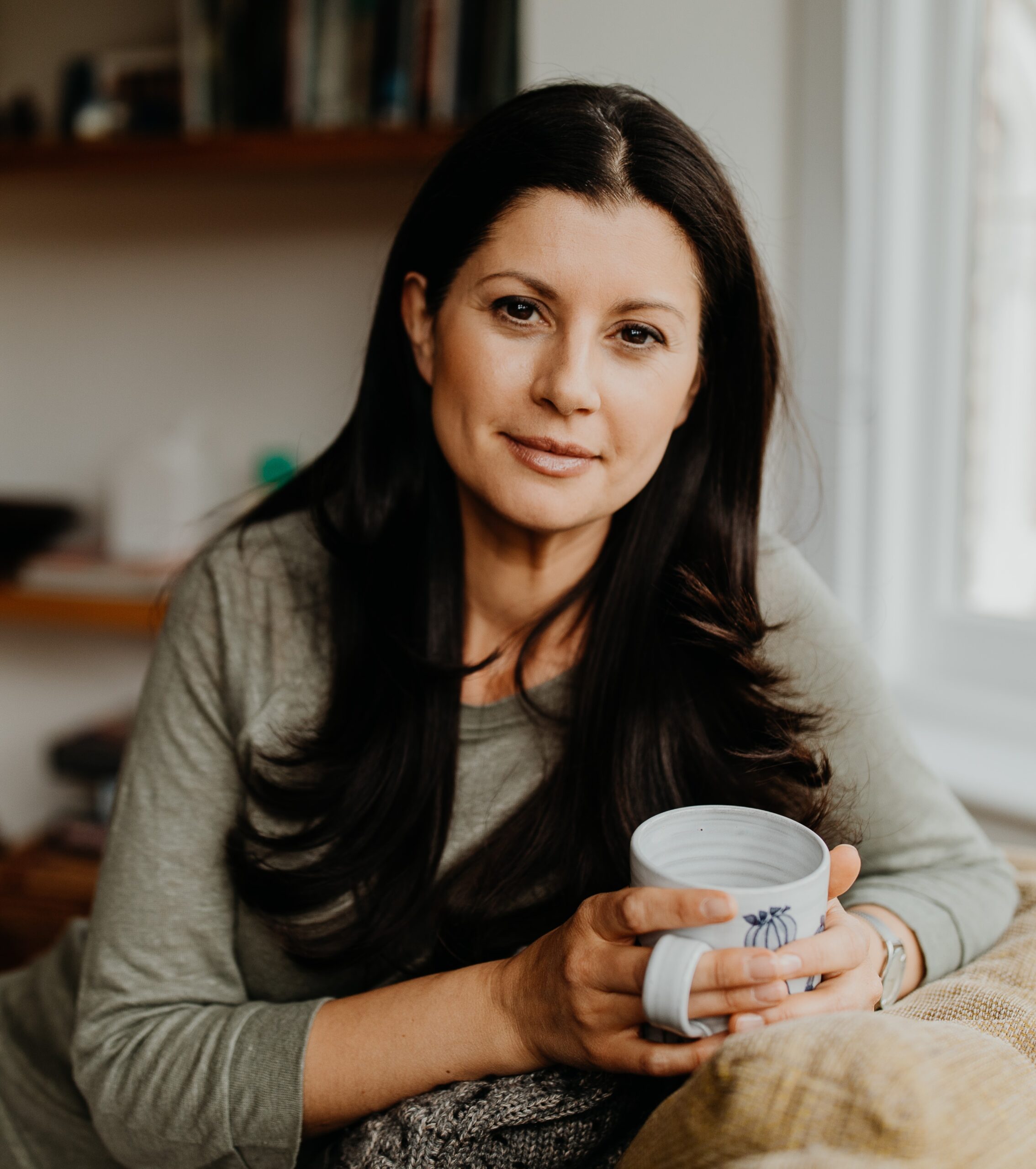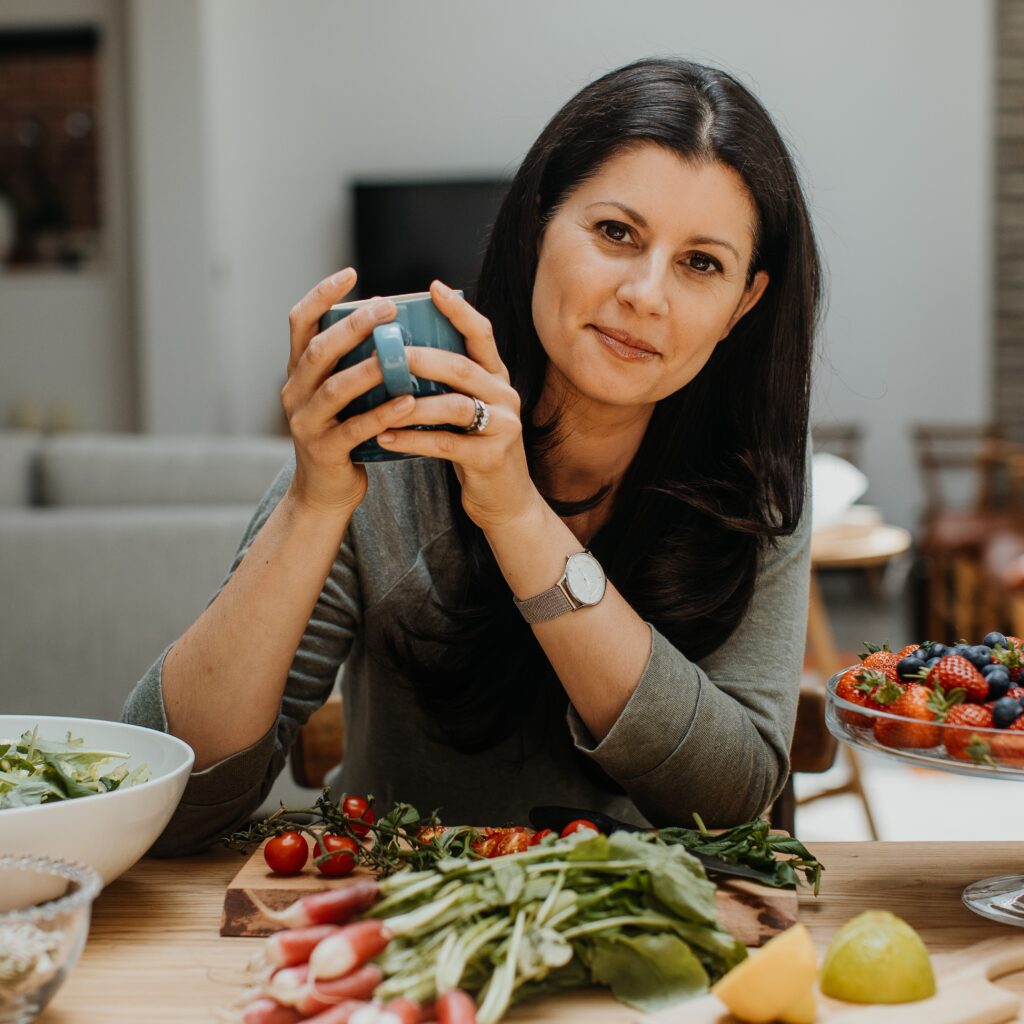Recently a client sat before me in tears. She’d been struggling for months with anxiety. When I told her,
“OK. So, we need to talk about your gut,”
she looked at me, confused.
I explained that gut health is inextricably connected to how you feel emotionally, how you handle stress, and even how confident you feel in yourself day to day. And here’s the good news: what you eat can make a meaningful difference.
The Gut-Brain Connection
You’ve probably heard the phrase “gut feeling” and there’s real science behind it. Your gut and brain are constantly talking to each other through something called the vagus nerve. Think of it like a direct hotline between your belly and your brain.
Often referred to as the “second brain,” our gut is the only organ to have its own independent nervous system, consisting of an intricate network of 100 million neurons embedded in the gut wall.
Your gut also makes neurotransmitters, the brain’s chemical messengers. Known as the “happy hormone,” around 90% of serotonin is made in the gut. It is highly influenced by the billions of “good” bacteria that make up your gut microbiome.

It’s made with the help of the amino acid tryptophan, which we get from nuts, eggs, and meat like chicken and turkey. Neurotransmitters protect the lining of your intestines and ensure they provide a strong barrier against toxins and “bad” bacteria: they limit inflammation, improve how well you absorb nutrients from your food, and activate neural pathways that travel directly between the gut and the brain.
Your bacteria may even be sending ‘requests’ to your brain.
There are many families or species of bacteria in the gut. One major species, Bifidobacterium, loves to munch on fibre. When you eat fibre, Bifidobacterium produces something called butyrate. Butyrate can make its way to the brain and can improve mood. So, you might crave fibre because you’ve learned a Pavlovian response to that feel-good feeling.
Perhaps you’ve noticed that you can feel low or even depressed after an illness or a course of antibiotics. When your digestion is poor or your gut is inflamed, it can affect your mood, sleep, and even how emotionally resilient you feel.
Confidence and Food: What’s the Link?
Confidence isn’t just about mindset it’s also about how you feel physically. When your blood sugar is on a rollercoaster, you’re more irritable. When your digestion is sluggish, you feel heavy, flat, or just not quite right in your body. And when your meals aren’t meeting your nutritional needs, you can end up relying on caffeine or sugar to get through the day a picture I see with my clients every single day.
When you start eating in a way that nourishes your body, you feel sharper, more focused, more productive. And yes, more confident.
I’m not a fan of extremes or guilt-ridden food rules. For me, when it comes to what we eat, the focus is always nourishment.
My Golden Rule: Protein, Fibre, Healthy Fats
This is the foundation I give every woman I work with. Every meal and snack should aim to include the magic trio:
- Protein
Essential for blood sugar balance, hormone support, and keeping you full. Think eggs, fish, chicken, tofu, pulses. - Fibre
Vital for gut health and feeding the beneficial bacteria that regulate your immune system and mood. Think vegetables, oats, wholegrains, beans. - Healthy fats
Slow digestion, help absorb nutrients, and support brain function. Think olive oil, avocado, nuts, seeds and oily fish.
This trio keeps your energy stable, reduces those mid-afternoon crashes, and supports more consistent moods.
Breakfast is a great place to start. If you’re still skipping it or just having toast and jam, it’s no wonder your energy dips by mid-morning and you’re craving sugar by 4pm.
Try something like scrambled eggs on wholegrain toast, with spinach and avocado. Or porridge with almond butter, grated apple, and cinnamon. It doesn’t have to be complicated — it just has to have the magic trio.
Gut-Boosting Foods for Emotional Resilience
Certain foods support the gut-brain connection – aim to incorporate them into your day-to-day:
- Fermented foods like yoghurt with live cultures, kefir, kimchi, and sauerkraut contain probiotics that keep your microbiome diverse and strong.
(But if you’re new to these foods, go low and slow as they can be bloating at first.) - Prebiotics (the food for your gut bacteria) are found in onions, garlic, leeks, bananas, and oats.
- Omega-3 fats (found in salmon, flaxseeds, walnuts) have anti-inflammatory effects and support brain health.
- Colourful veg help reduce gut inflammation and support mood balance.
When you’re doing a food shop, look at your basket – are you eating the rainbow?
One of my favourite mood-boosting snacks is a handful of walnuts and some blueberries.
Simple. Nourishing. Gut-happy.
Lifestyle Shifts That Genuinely Help (Even When You’re Busy)
I always remind my clients that it’s not just what you eat, but how you live that affects your gut and emotional wellbeing. Here are a few gentle, realistic changes that can make a big difference:
Watch the Wine-Wind-Down
That glass of wine might feel like a reward at the end of a long day, but it can disrupt your gut bacteria and your sleep. Try going alcohol-free a few nights a week and see how you feel.
Reduce Stress (Not Just Mentally)
Stress messes with your digestion. Few of us have an hour a day to put aside for self-care, but even a five-minute breathing practice or a ten-minute walk outside after dinner can soothe your nervous system and your gut will benefit too.
A Gentle Reminder About Self-Compassion
I know how easy it is to put yourself last on your never-ending to-do list, but feeding your body well isn’t a luxury. It’s essential so that you can feel your best and show up fully in your work, your relationships, and your life.
I say this all the time:
Eating well is a form of self-compassion.
It’s how we honour the fact that we matter too.
You don’t need to be perfect. You just need to be consistent.
A few more gut-loving meals each week. A few better snacks.
A breakfast that sets the tone.
That’s where change begins.
And with it?
More energy.
More ease.
More confidence in your own skin.
Thalia Pellegrini Bio:
Thalia Pellegrini is a BANT-registered nutritional therapist and women’s health specialist. With over a decade’s experience, she supports clients in the UK, Ireland, and North America both 1:1 and in her group programs with hormonal health issues ranging from PMS to perimenopause, PCOS and endometriosis, low energy and fatigue. Thalia is also the perimenopause expert for award-winning brand Wild Nutrition.
| thalia@thaliapellegrini.com | |
| Website | http://www.thaliapellegrini.com |
